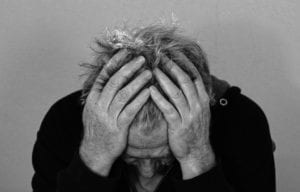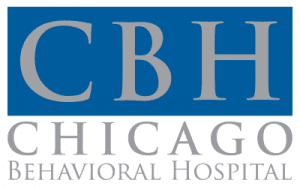Chicago Behavioral Hospital offers FREE Assessments 24/7, call us at
Depression
Understanding, Treatment & Help
Do you or a loved one frequently feel despondent, down, or disinterested in things you normally enjoy? It could be more than just “feeling blue.”
At Chicago Behavioral Hospital, our multidisciplinary team works with thousands of people from the greater Chicago area looking for help and hope in the face of clinical depression, a common cause of disability in our country.
Types and Causes of Clinical Depression
Recovering from depression is not a matter of “just cheering up.” People with clinical depression have a mood disorder that affects the neurochemistry of their brain and their experience of life.
 There are several different types of clinical depression. The main type is known as major depressive disorder and is considered “unipolar.” It is clinically different from bipolar disorder, a condition which presents with alternating periods of depressive episodes and manic episodes (periods of extremely elevated mood). Other types of depression include seasonal affective disorder (SAD) and postpartum depression (PPD). Regardless of the specific type, depression refers to a condition that is more significant than occasional periods of sadness or grief (so-called “situational depression,” which is a normal part of what it means to be human).
There are several different types of clinical depression. The main type is known as major depressive disorder and is considered “unipolar.” It is clinically different from bipolar disorder, a condition which presents with alternating periods of depressive episodes and manic episodes (periods of extremely elevated mood). Other types of depression include seasonal affective disorder (SAD) and postpartum depression (PPD). Regardless of the specific type, depression refers to a condition that is more significant than occasional periods of sadness or grief (so-called “situational depression,” which is a normal part of what it means to be human).
It’s estimated that as many as 1 in 10 people in America are living with adult depression in any given year.
Symptoms of Depression
Clinical depression is the leading cause of disability for people between the ages of 15 and 44, and a person’s signs and symptoms can vary significantly in terms of type, duration, and frequency. Common ones include:
- Persistent feelings of sadness, emptiness, worthlessness, guilt, or hopelessness
- Frequent outbursts of anger and irritability
- Loss of interest or pleasure in activities which are usually enjoyable; social isolation
- Sleeping too much or too little
- Appetite and weight disturbances (eating too much/too little; weight gain/weight loss)
- Poly-substance use
- Unexplained fatigue and physical symptoms, such as back pain
- Difficulty concentrating, making decisions, and remembering
- Anxiety, agitation, or restlessness
- Frequent thoughts of death, suicidal ideation, and/or suicide attempts
- Depression is the primary driving factor behind our nation’s suicide rate, claiming around 41,000 to 44,000 Americans per year (a rate of 1 every 12 to 13 minutes) according to stats in 2018.
Fortunately, there is hope: depression is treatable, and many people living with this condition can lead productive and meaningful lives with proper depression treatment.
Depression Treatment at the Chicago Behavioral Hospital
We recognize and honor the fact that no two people have the exact same experience of life. To this end, our staff works tirelessly and patiently to find the right depression program for every individual person who walks through our doors. Depending on your needs, treatment may include:
- Psychotherapy
- Medication
- Group counseling
- Immersive inpatient services
- Intensive outpatient services
Our services have made significant differences in the lives of thousands of people from the Chicago area, and we’re confident we can help you or a loved one looking for compassionate and effective treatment, too.
Do You Need Help Managing Adult Depression? Contact Chicago Behavioral Hospital Today. If you are concerned about your mental health, please don’t hesitate to contact Chicago Behavioral Hospital today by calling (844) 756-8600. We offer free and confidential health assessments 24/7.
We’re here for you—call us at any time.


